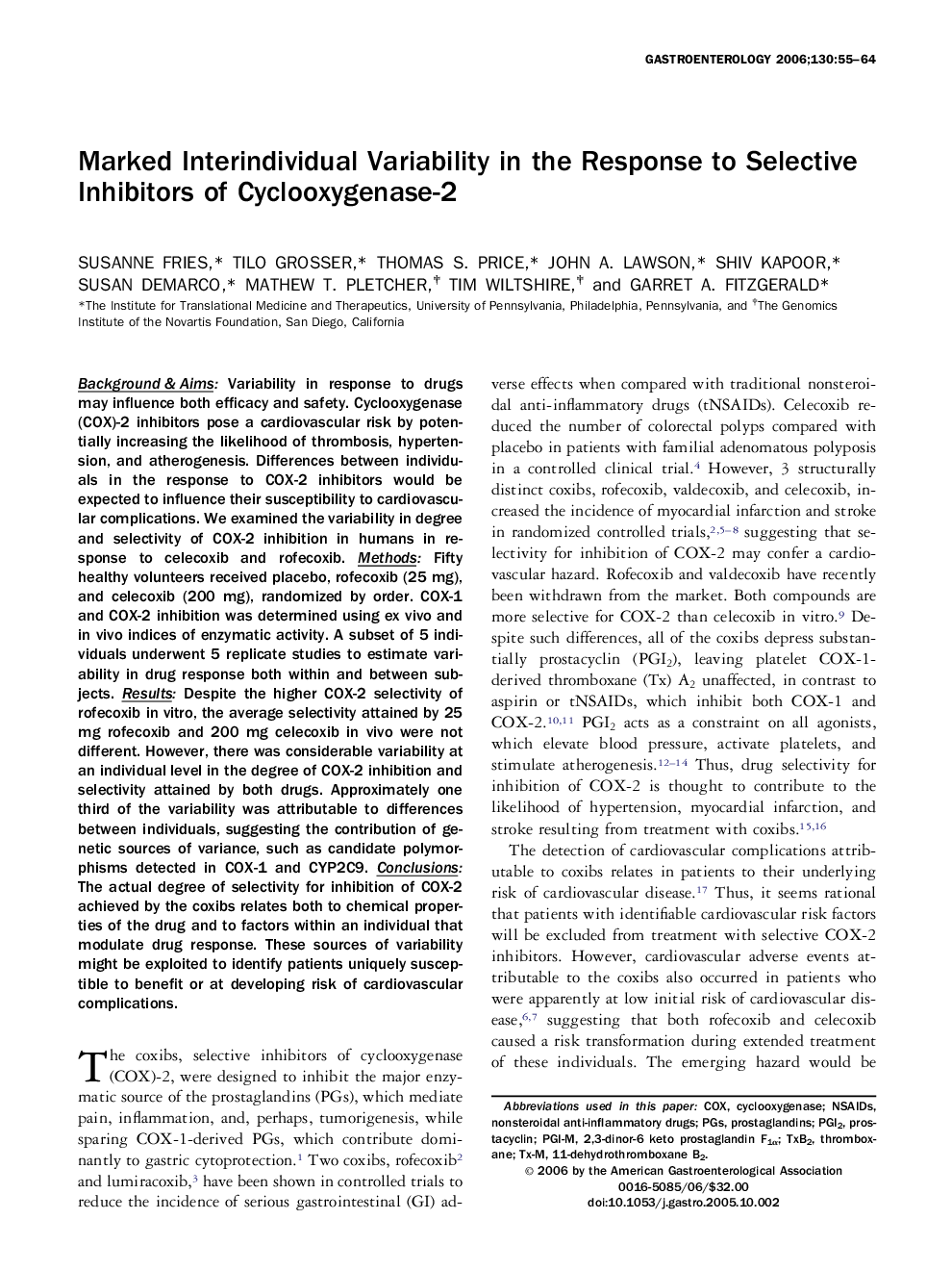| Article ID | Journal | Published Year | Pages | File Type |
|---|---|---|---|---|
| 3297984 | Gastroenterology | 2006 | 10 Pages |
Background & Aims: Variability in response to drugs may influence both efficacy and safety. Cyclooxygenase (COX)-2 inhibitors pose a cardiovascular risk by potentially increasing the likelihood of thrombosis, hypertension, and atherogenesis. Differences between individuals in the response to COX-2 inhibitors would be expected to influence their susceptibility to cardiovascular complications. We examined the variability in degree and selectivity of COX-2 inhibition in humans in response to celecoxib and rofecoxib.Methods: Fifty healthy volunteers received placebo, rofecoxib (25 mg), and celecoxib (200 mg), randomized by order. COX-1 and COX-2 inhibition was determined using ex vivo and in vivo indices of enzymatic activity. A subset of 5 individuals underwent 5 replicate studies to estimate variability in drug response both within and between subjects.Results: Despite the higher COX-2 selectivity of rofecoxib in vitro, the average selectivity attained by 25 mg rofecoxib and 200 mg celecoxib in vivo were not different. However, there was considerable variability at an individual level in the degree of COX-2 inhibition and selectivity attained by both drugs. Approximately one third of the variability was attributable to differences between individuals, suggesting the contribution of genetic sources of variance, such as candidate polymorphisms detected in COX-1 and CYP2C9.Conclusions: The actual degree of selectivity for inhibition of COX-2 achieved by the coxibs relates both to chemical properties of the drug and to factors within an individual that modulate drug response. These sources of variability might be exploited to identify patients uniquely susceptible to benefit or at developing risk of cardiovascular complications.
